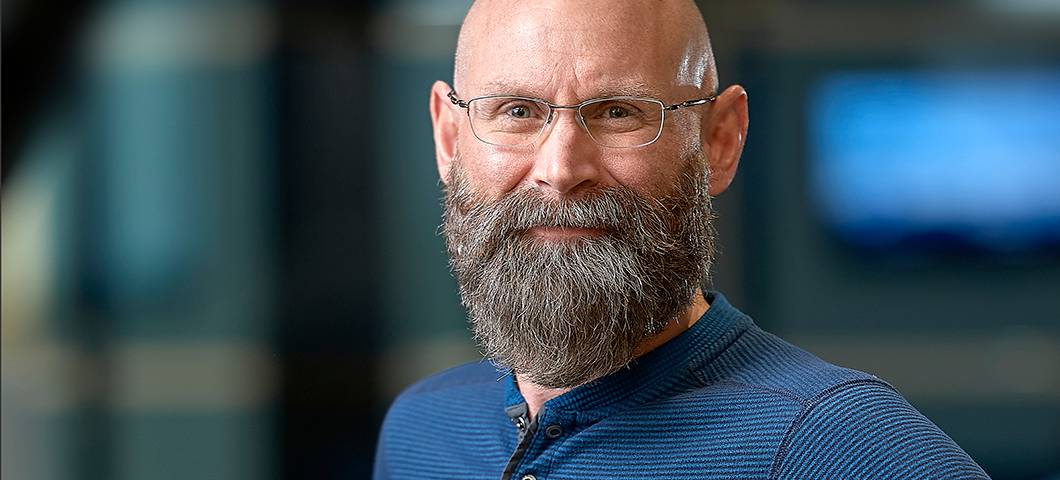Stephen Sofie
Professor in the Department of Mechanical and Industrial Engineering
Did you always know you’d go to college?
Not until very close to my high school graduation. I contemplated different trade and vo-tech options as the four-year college route was not a path that those in family had pursued or talked about highly. I have always been driven by the concept of discovery in science and technology and realized that a college degree in engineering was the best path to reach that dream.
Who or what inspired you to apply to college?
I was always a very hands-on learner, and I enjoyed building, making and tinkering. My inspiration for college came in that. Despite my general satisfaction in working with my hands I often pondered why things worked the way they did, and that ultimately lead me to pursuing a four-year engineering degree. When I graduated with my bachelor’s, I really yearned to push the envelope of engineering knowledge — not just complete a line of work, but help to frame the basis of investigation and engineering research.
I knew right after my bachelor’s that I wanted to pursue a doctorate to foster a deeper knowledge and one day conduct my own research. I opted for a master's degree first, since I had two young children and wanted to ensure I could use my graduate education in some regard if I needed to step back and support my family.
Did you have a mentor that helped and supported you as an undergrad?
No
What resources helped you succeed as a first-gen student?
I wasn't eligible for any favorable loans, so to pay for my undergraduate education I worked the graveyard shift as a hotel night auditor, 40 hours per week in downtown Seattle. Sometimes I had my doubts, particularly in dealing with stab victims and attempted robberies at the hotel during the late-night shifts. In those moments, when I seemed to know 911 dispatchers better than some of my own classmates, I succeeded purely through motivation to attain what I so desperately sought. I was determined not to falter.
That determination stemmed from my intent to focus on using my head instead of my mechanical aptitude to attain a career I could truly enjoy for a lifetime. I realized that many engineers never seem to really retire, as engineering is truly a part of who they are — they always seemed to find a way to apply their engineering knowledge to make a difference no matter their stage in life.
What advice would you give to a first-gen student today?
Persistently reinforce where you want to be and why you are here. Push yourself beyond what a course simply requires, and when you find an intriguing concept, investigate on your own through the foundational learning skills you are thought in college.
I know that course groups are often a source of contention in college studies, but make yourself indispensable to the group and be an enthusiastic learner to appreciate learning comes in many forms. Finally, when you struggle, and you will, do not try and rationalize how the system is stacked against, but focus on the accomplishment you have made, how far you have come, and realize your potential for the contribution you can make.

